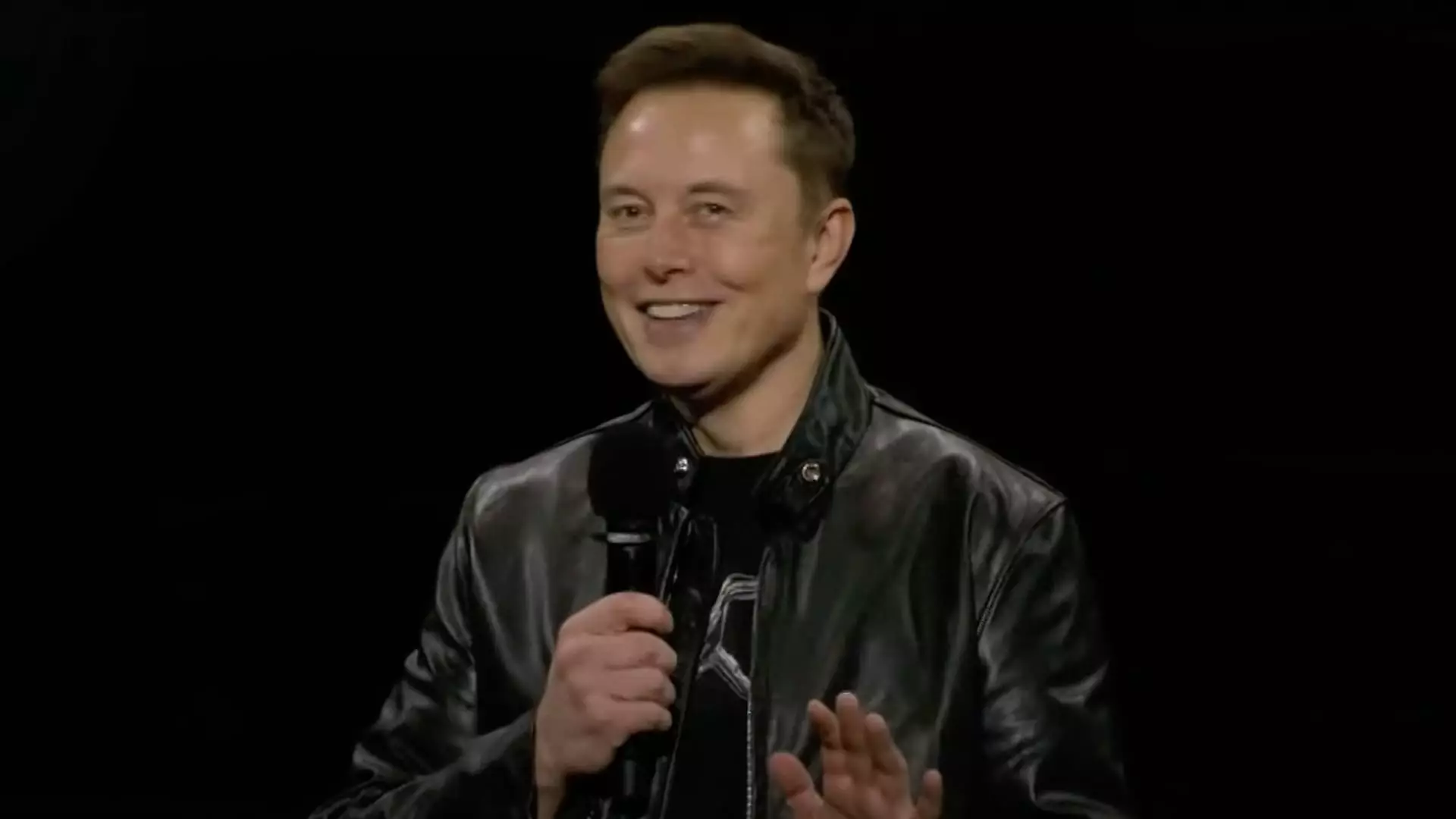Elon Musk, the face of modern innovation and CEO of Tesla, continues to redefine the boundaries of wealth accumulation and influence in both the technology and political realms. Recently, Musk saw a staggering $26 billion increase in his net worth in just one day as Tesla’s stock experienced its most significant rally since 2013. This financial surge places Musk at approximately $269 billion, eclipsing his closest competitor, tech mogul Larry Ellison, by more than $50 billion. However, Musk’s journey is more than just dollars and cents; it involves a complex tapestry of corporate strategy, innovation, and controversial political stances.
Musk’s wealth is intricately tied to his stake in Tesla, where he holds close to 13% of the company’s outstanding shares, which represents a large portion of his wealth. In addition to Tesla, Musk’s financial portfolio includes a significant stake in SpaceX, which is now valued at over $200 billion in private markets, as well as ownership of the social media platform X (formerly Twitter) and the AI company xAI. Despite the glimmers of prosperity, Musk’s financial narrative is also fraught with uncertainties, particularly given the ongoing lawsuits concerning his 2018 compensation package. The latest spike in Tesla’s stock price followed the company’s impressive earnings report, which not only surpassed analyst expectations but also reignited investor confidence that had waned in the previous months.
The context surrounding the earnings report provides valuable insight into the stock’s performance. Tesla reported earnings per share of 72 cents, substantially higher than the anticipated 58 cents. A significant component of this revenue stemmed from environmental credits and the Full Self-Driving (FSD) system, which collectively contributed nearly $1.1 billion to the bottom line. Although investors celebrated this news with a 22% surge in stock value, it raised questions about the sustainability of Tesla’s future growth, especially in a marketplace that’s evolving rapidly.
A focal point during Musk’s remarks was the company’s ambitious projections for vehicle growth over the next year, predicting increases between 20% and 30%. Despite frequently promising advancements in autonomy, Tesla has yet to deliver a product that can operate entirely independently of human intervention. Moreover, while competitors like Alphabet’s Waymo have successfully launched commercial driverless services, Tesla’s progress has stalled, raising skepticism regarding the feasibility of Musk’s grand visions. The disparity between Musk’s ambitious promises and the current reality of Tesla’s offerings leaves investors and analysts divided.
Moreover, while recent showcases for vehicles like the Cybercab and new iterations of the Semi truck generated excitement, the long waits for product rollouts have diminished public confidence. The unfinished designs and pilot production stages cast doubt on whether these vehicles can meet consumer expectations or market readiness.
Another dimension of Musk’s recent exploits involves his public support of Donald Trump and the considerable financial contributions he has made to political action committees backing the Republican nominee. This political engagement has sparked controversy and raised eyebrows among investors and analysts who believe that Musk’s outspoken activism may be at odds with his duties as Tesla’s CEO. Questions arise regarding the implications of his political activities on shareholder value and overall brand perception.
Musk has implemented aggressive tactics in leveraging his platform to rally support, including a $1 million daily reward scheme for voters in key swing states. These outreach efforts have not only attracted attention but have also attracted scrutiny from regulatory bodies like the U.S. Department of Justice, which has cautioned that such initiatives may conflict with federal election laws.
While many acknowledge Musk’s right to freely express his political opinions, there is a palpable concern among shareholders who question the intersection of his political pursuits and corporate responsibilities. An anonymous retail investor highlighted this divide, calling for a sharper focus on shareholder value, which seems to be overshadowed by Musk’s external influences.
Elon Musk embodies the quintessential modern entrepreneur—a figure whose influence extends far beyond business. As Musk navigates the complexities of wealth, innovation, and political involvement, the consequences of his actions ripple through the financial markets and societal structures. The rollercoaster of his financial fortunes is matched only by the unpredictability of his ventures, clouded by the dual pressures of ensuring corporate growth and managing public persona in the political sphere. The coming months promise to be consequential, as investors and stakeholders alike grapple with the full impact of Musk’s decisions on the tech giant’s future and broader implications for industry standards.

